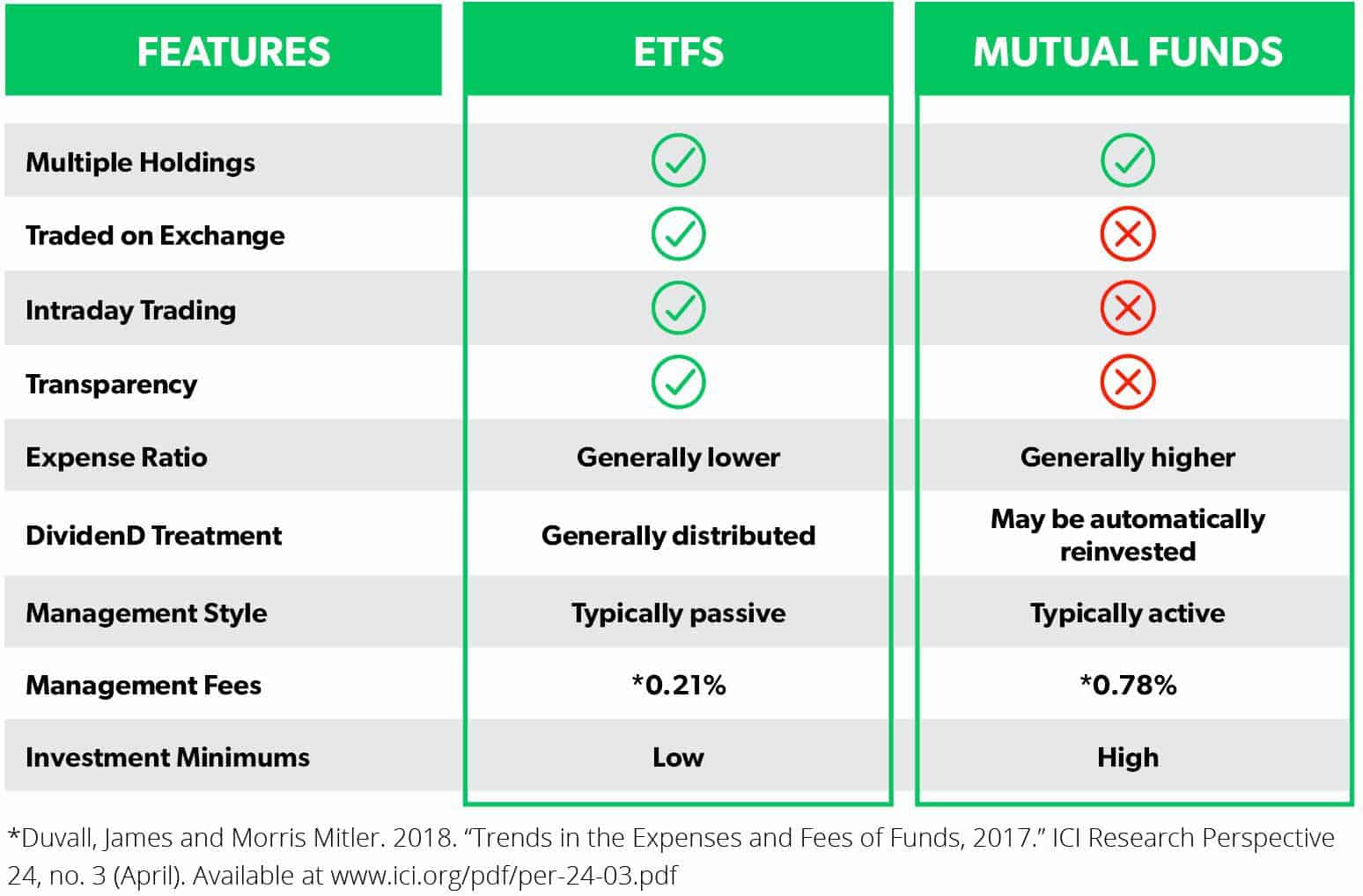In the New York Stock Exchange there are a variety of methods for investors to diversify their portfolio. Upon two distinctive methods are exchange traded-funds (ETFs) and mutual funds.
ETFs represent a collection of individual stocks, indexes, and other values specific towards a certain industry. ETFs can be traded at instances throughout the day with fluctuated values. One primary reason to invest in ETFs is the benefit of simplifying portfolios from a combination of individual stocks reflecting a market category.
Mutual Funds are selective in their representation of values through a variety of individual funds like ETFs. However they can be bought and sold at market opening and closure, of which calculate final prices for an assured gain or loss of value, and require a high minimum balance in their investing accounts to start investment. Mutual funds assure final value rather than ETF volatility at market hours, which also simplifies portfolio complexity.
ETFs are known to be the more popular option because it has lower cost requirements than mutual funds which require minimum balances and pricing. Both methods are prone to risk, however the existence of these methods imply benefits to those who utilize them.
In conclusion, your decision is necessary to determine which method you would like to favor. Your mileage may vary to how much investments and time will you spend on research and monitoring of portfolios. Aside from self-investing, you can also hire a stock broker actively managing funds. Brokers from banks usually provide financial advice on your portfolios and your future intentions.

To read more about the differences between mutual funds and ETFs,
read further on this link: https://www.investopedia.com/articles/exchangetradedfunds/08/etf-mutual-fund-difference.asp
